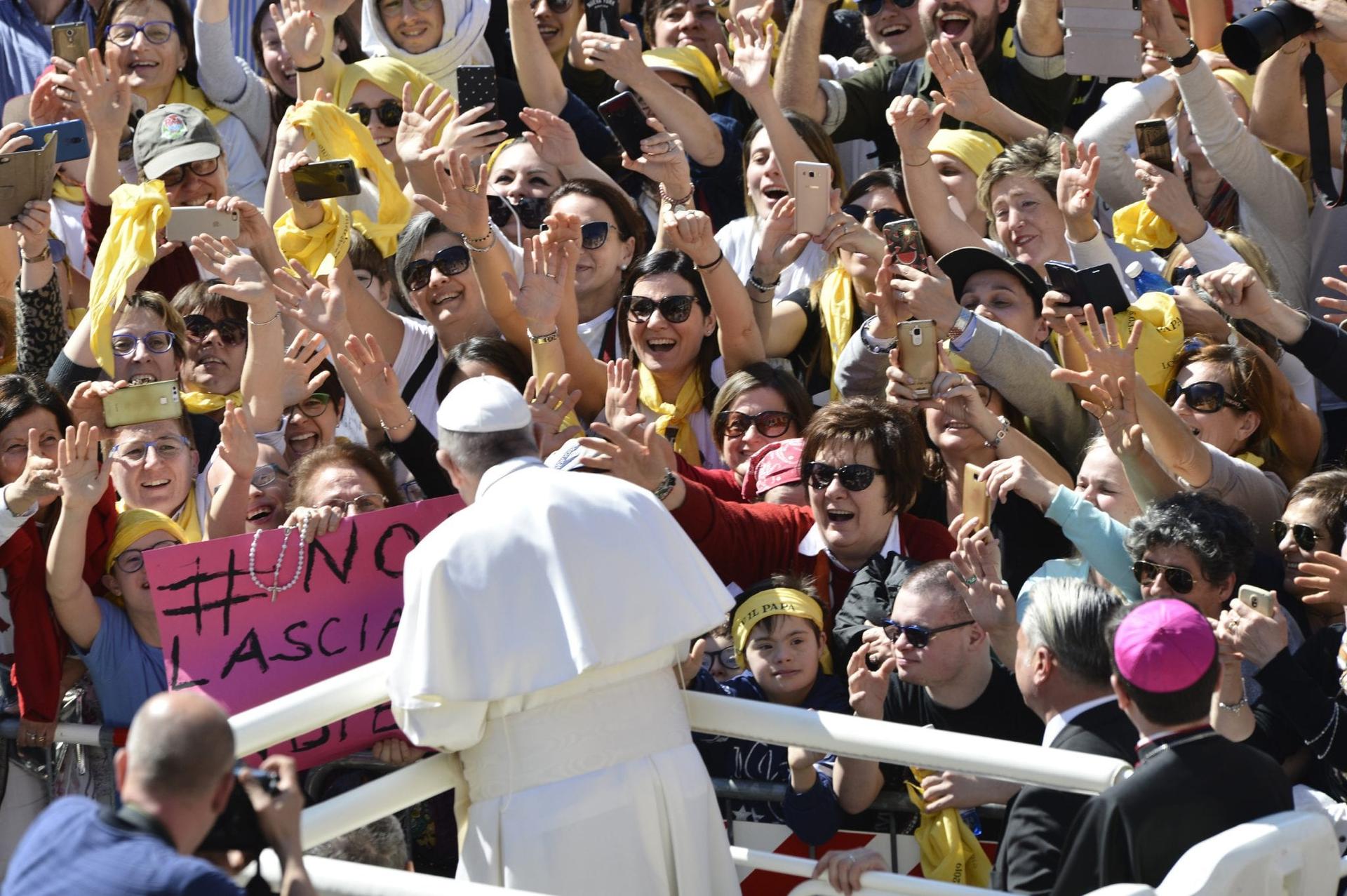ROME – “I always disliked this Synod on young people,” admitted Andrea Monda, Editor and Chief of the Vatican daily L’Osservatore Romano.
Bishops from all over the world convened in Rome for a summit last October to discuss “young people, faith and vocational discernment” and produced a document containing more than 160 points. Pope Francis’s Apostolic Exhortation to young people — “Christ lives”– was signed at the Marian shrine of Loreto on Monday and will be made available to the public April 2.
As a religion teacher and university professor in close contact with youth, Monda struggled to understand how young people could be a topic for a summit of bishops. The editor had other reasons to dislike the event, he said, since he had to wait the entire month to hear if he had been appointed by Francis to head L’Osservatore.
Monda added that despite his initial misgivings he came to see the positive aspects of the synod.
“The first result was to make bishops understand that young people exist,” he said. “Young people have disappeared from the horizon a little bit. It was an 80-year-old, the pope, to remind a bunch of 60-year-olds that ‘hey, look, 20-year-olds exist!’”
These remarks were made during a conference at the Pontifical Gregorian University in Rome titled “The Synod on Young People: A First Review,” which took place March 26.
The document of the synod, written in collaboration with young people, contained several strong statements regarding the fading relevance of the Catholic Church for many youths today and many indictments of the Church’s handling of sexual abuse, the role of women in its hierarchy, and its scandals.
Young lay people were allowed in the Synod hall, a first in Catholic history, and cheered or clapped to voice their approval. Francis acknowledged this unprecedented “chiasso,” loosely translated in English as “uproar,” during his speech closing the event and praised the “synodal” process that led to the final document.
“We young people must make an uproar,” said Chiara Calzolaro, National secretary of the youth section of the Italian movement Catholic Action, during the conference, adding that young people were not meant to be the subjects of the synod but “its first protagonists, its receivers and announcers.”
In his final speech, Francis made it clear that the synod was not meant for the outside world or for the production of documents but to begin a conversion for the Catholic Church from the inside, tasked with the responsibility of integrating and actuating what was discussed.
According to the speakers at the conference it’s too soon to draw conclusions on the synod that took place six months ago. Only time will tell if the Church’s effectiveness in engaging young people will improve thanks to the questions and answers brought up at the synod.
“It’s necessary that the entire Church be receptive to this document,” said Luciano Iannuso, Vice president of the youth section of the Italian movement Catholic Action, speaking at the conference.
The key remains, as always, listening to young people, Iannuso said.
“This has been disregarded by the very organization of parishes, which tend to prevent a real engagement with young people,” he added.
Number 15 of the final document on the synod stated that “parishes struggle to appeal to young people” due to “their low profile in urban areas, their lack of original and constructive ideas, and rapidly changing lifestyles.”
Participants at the conference voiced their agreement on the indictment, recounting their own experiences with parishes increasingly empty of young people.
Another request by youth in the document was for better accompaniment and role models to imitate.
“In terms of who accompanies them, young people are very demanding,” Calzolaro said, “the formation of people who accompany them cannot be left to chance.”
Listening to concerns such as these is very important, Monda said, but as a father and educator he added that “listening can many times become a rhetoric” and often young people “are asking for our words.”
“Perhaps they are looking for someone who tells them a story, a story that might engage them somehow,” he said. “If generations don’t tell each other stories you get that terrible loneliness that young people are experiencing today.”
Catholics will have to wait a few days to read Francis’s conclusions on the synod, but if the speakers at the conference are right and stories provide the hermeneutics to mending the broken relationships between young people and the Catholic Church, it may not be such a grim endeavor.
After all, the Catholic Church has one heck of a story to tell.













